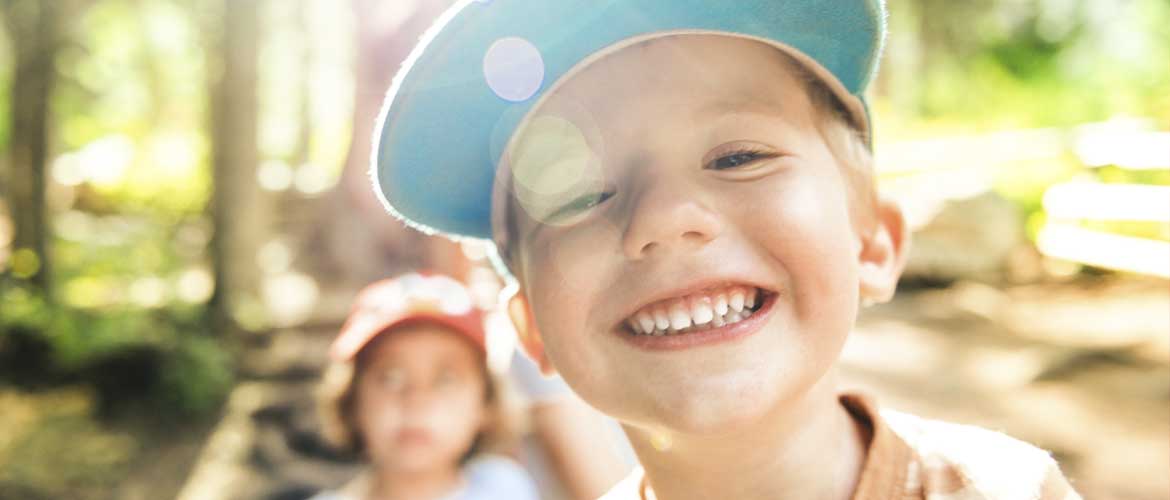May 8, 2017
Before you send your little one off for a summer they’ll never forget, read on for your guide to a safe (and fun) summer camp experience.
Pre Camp
First things first, you need to determine a few summer camp variables: distance, length of time, activity offerings, price, etc. Once you’ve narrowed your focus, it’s time to do some deeper research into which summer camp will be best for you and your child.
Anymore, there are camps dedicated to every sport, activity, and hobby your child may have. No matter the interest of your child, it’s important to look for these traits in a camp:
- Counselor-to-camp ratio – the smaller the ratio, the more individual attention your child will receive.
- Accreditations – the American Camp Association conducts on-site visits to review the programs, facilities, as well as the camp’s hiring and safety policies.
- Safety – this includes background checks for employees, trained first-aid staff and lifeguards on duty.
A camp physical is also an important part of making sure your child is healthy enough for camp and all the activities that come with it, and can also help reduce the risk of potential injury at camp.
MedExpress Pro Tip: We offer convenient and affordable camp, school, or sports physicals* during our flexible hours in centers across the country.

During Camp
You pull up to the camp and your kiddo is ready to run out and play – not so fast. To make the most out of their camp experience, educate your child on these safety tips:
- Quench Your Thirst – as temperatures heat up, it’s more important than ever to make sure kids are drinking enough fluids. Before any physical activity, aim to drink at least 12 ounces of water (try to find a 12 oz. water bottle for their camp trip) 30 minutes before. And don’t stop there, remind your child to take fluid breaks by drinking 10-18 “gulps” every 20 minutes of physical activity. Oftentimes, young children are unable to quickly adjust to changes in temperature, which make them more susceptible to heat exhaustion.
- (Don’t) Feel the Burn – The best way to prevent sunburn is to apply sunscreen and apply often. Aim to liberally apply at least 20 minutes before heading outside and reapply every two hours after, unless it gets washed away or sweat off. And don’t forget those hard to reach spots. Teach your child BEENS to remember these areas: back of knees, ears, eye area, neck, and their scalp. Pack spray sunscreen with your child, which can help them cover these hard to reach areas.
- Turn Ahh Choos Back into Ahhs – when you’re outside enjoying fun in the sun, potential allergens can be lurking everywhere you look. While allergies can’t be cured, you can treat the symptoms. Before your child arrives at camp, it’s best to let the camp counselor know of any allergies your child may have, ranging from seasonal to food allergies. After your child has been having a blast outside, it’s important for them to remember to take a shower or bath afterwards and change their clothes – especially before bed. If your child is allergic to bee stings, be sure they carry any medication they may need, like an Epi-Pen, at all times. Teach them to always wear their shoes outside (no walking barefoot) and to be cautious of drinking directly out of open cans or bottles, which wasps can hide in. Is campfire smoke making it hard to enjoy your toasted marshmallows? Try sitting farther away from the fire and in the opposite direction the wind is blowing.
Remember to pack a sufficient supply of allergy medicine for your child and pass it along to the camp nurse.
Post Camp
As the summer winds down, it’s time for your camper to come home. And while you can’t wait to hear about all the activities and friends they’ve made along the way, there are a few things to look for when your child comes home from camp.
- Infected Bug Bites – bug bites are bound to happen at camp, and they usually clear up in a few days. But, if your child has puss in or around the bite, swelling, pain, or redness, the bite may be infected. Consider seeking medical treatment, as it may require antibiotics.
- Poison Ivy/Rashes – usually spotted by their “leaves of three,” poison ivy can sometimes be hard for children to point out. If your child has an itchy, red rash that turns into small blisters after a few days, they may have come into contact with poison ivy, poison oak, or poison sumac. Be sure to wash all clothing and belongings after a child comes home to remove any oils that may still remain.
- Ticks – when your child comes home, be on the lookout for any ticks that may be attached to them. If an infected deer tick is attached to a person for 36-48 hours, they can be at risk for Lyme disease. If the tick is lodged into the skin, use tweezers to remove the tick by squeezing near its head. If you can’t remove the entire tick, seek medical attention.
* Does not include any ancillary services or tests that may be required. Ages 6 & up. Some restrictions apply. Price and availability subject to change.
